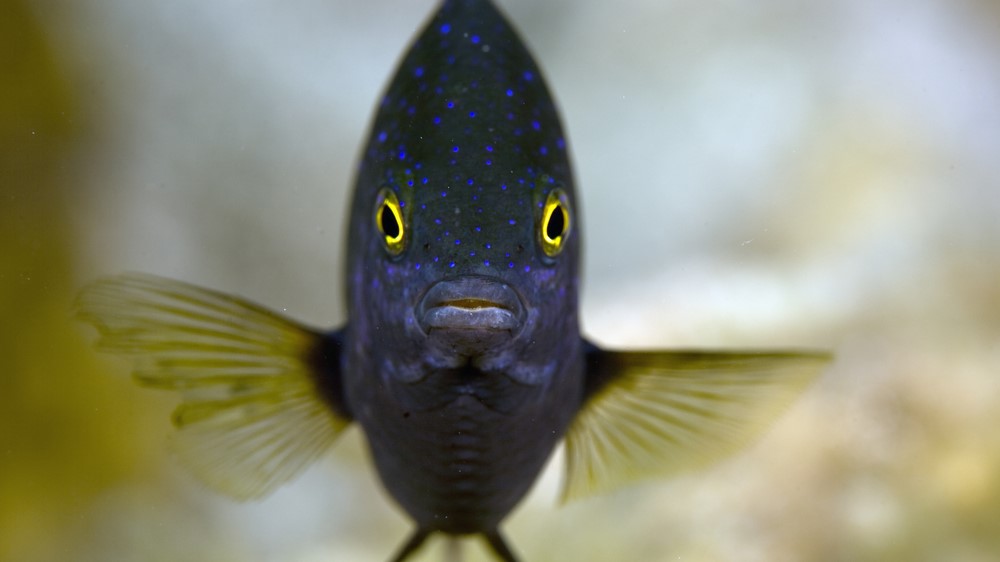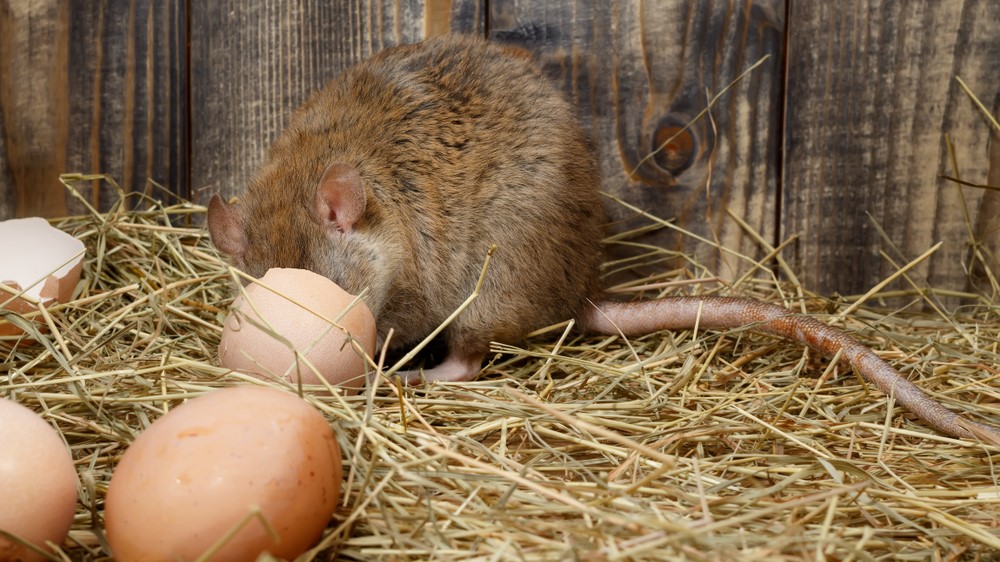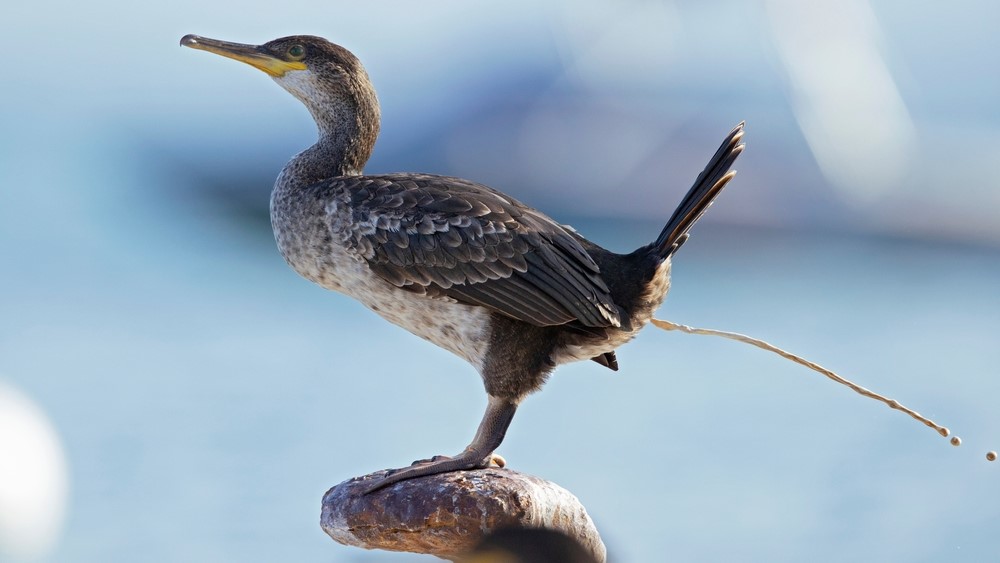Invasive rats are changing how reef fish behave. It's because there's not enough bird poop.
Jewel damselfish living on coral reefs surrounding rat-infested tropical islands have become less territorial and less aggressive due to a bizarre ecological link between the two species: bird poop.
Get the world’s most fascinating discoveries delivered straight to your inbox.
You are now subscribed
Your newsletter sign-up was successful
Want to add more newsletters?

Delivered Daily
Daily Newsletter
Sign up for the latest discoveries, groundbreaking research and fascinating breakthroughs that impact you and the wider world direct to your inbox.

Once a week
Life's Little Mysteries
Feed your curiosity with an exclusive mystery every week, solved with science and delivered direct to your inbox before it's seen anywhere else.

Once a week
How It Works
Sign up to our free science & technology newsletter for your weekly fix of fascinating articles, quick quizzes, amazing images, and more

Delivered daily
Space.com Newsletter
Breaking space news, the latest updates on rocket launches, skywatching events and more!

Once a month
Watch This Space
Sign up to our monthly entertainment newsletter to keep up with all our coverage of the latest sci-fi and space movies, tv shows, games and books.

Once a week
Night Sky This Week
Discover this week's must-see night sky events, moon phases, and stunning astrophotos. Sign up for our skywatching newsletter and explore the universe with us!
Join the club
Get full access to premium articles, exclusive features and a growing list of member rewards.
It's no secret that invasive rats can cause widespread and long-lasting damage to tropical island ecosystems, but now, a new finding reveals that the invasive rodents' impacts may extend even further than the land on which they scamper; these ravenous critters can also disrupt the surrounding marine ecosystem.
In the Indian Ocean, invasive island rats have altered the behavior of tiny farming fish known as jewel damselfish (Microspathodon chrysurus) that live on coral reefs located miles offshore, a new study shows. Affected damselfish have become much more docile than normal due to a weird link between the fish and the rats: bird poop.
Jewel damselfish are normally highly territorial fish that aggressively defend and cultivate small patches of algae that grow on corals surrounding tropical islands. The plant patches are greatly desired by the damselfish because the algae are highly nutritious, thanks largely to the nutrients that run off from the islands. One main source of island-derived nutrients is the poop, or guano, excreted by seabirds that nest on the islands, which then gets washed into the ocean.
However, invasive rats, which were historically introduced to islands after stowing away on ships, are known to decimate bird populations on their new homes by sneaking into nests and feeding on unhatched eggs. This can cause seabird densities to decrease by up to 720 times on rat-infested islands, which can decrease the nutrients in surrounding waters by up to 251 times, the study authors explained in a statement. As a result, the damselfish's algal patches have become less nutritious, which means the feisty farmers are less inclined to defend them.
Related: Glowing, red-eyed rat fetus is global photo contest's gorgeously creepy winner
In the new study, published Jan. 5 in the journal Nature Ecology & Evolution, researchers compared the damselfish behavior on coral reefs surrounding five rat-free islands and five rat-infested islands in a remote archipelago in the Indian Ocean.
The team found that damselfish surrounding rat-infested islands had larger territories, measuring an average of 6.7 square feet (0.62 square meter), compared with an average of 5.2 square feet (0.48 square meter) on rat-free islands. The larger territories are a sign that the fish have become less territorial over specific patches, the researchers said.
Get the world’s most fascinating discoveries delivered straight to your inbox.
The team also observed that the fish were up to five times less likely to act aggressively toward one another.
Jewel damselfish around rat-free islands fiercely defend their patch of algal turf because it is packed with nutrition, which means the fish get "more for their money," by using energy to defend it, said study co-author Rachel Gunn, a behavioral ecologist at Tübingen University in Germany and a former doctoral student at Lancaster University in the U.K. at the time of the study. "We believe that the presence of rats is lowering the nutritional benefit of the turf to the extent that it is almost not worth fighting for, which is what we are observing with these behavior changes."
The researchers think the change in the damselfish's behavior is likely to have further knock-on effects on their coral reef ecosystems, which have not yet been properly studied.
"The algal farming of damselfish affects the balance of corals and algae on the reef," Gunn said. "Their aggression towards other fish can [also] influence the way those fish move around and use the reef."
The decrease in the available nutrients in the water could also have implications for other algae eaters, as well as for filter-feeding organisms such as sponges, which could, in turn, affect food chains across the reefs, the researchers warned. "Ecosystems evolve a delicate balance over long time scales, so any disruption could have knock-on consequences for the wider ecosystem," Gunn said.
The team believes the new findings show how important it is to control or completely kill off invasive rat populations where possible.
"Rat eradication has the potential to have multiple, cross-ecosystem benefits," Gunn said. The removal of rats from tropical islands would likely restore the territorial behavior of jewel damselfish and provide other benefits to the rest of the coral reef ecosystem, she added.

Harry is a U.K.-based senior staff writer at Live Science. He studied marine biology at the University of Exeter before training to become a journalist. He covers a wide range of topics including space exploration, planetary science, space weather, climate change, animal behavior and paleontology. His recent work on the solar maximum won "best space submission" at the 2024 Aerospace Media Awards and was shortlisted in the "top scoop" category at the NCTJ Awards for Excellence in 2023. He also writes Live Science's weekly Earth from space series.
 Live Science Plus
Live Science Plus













